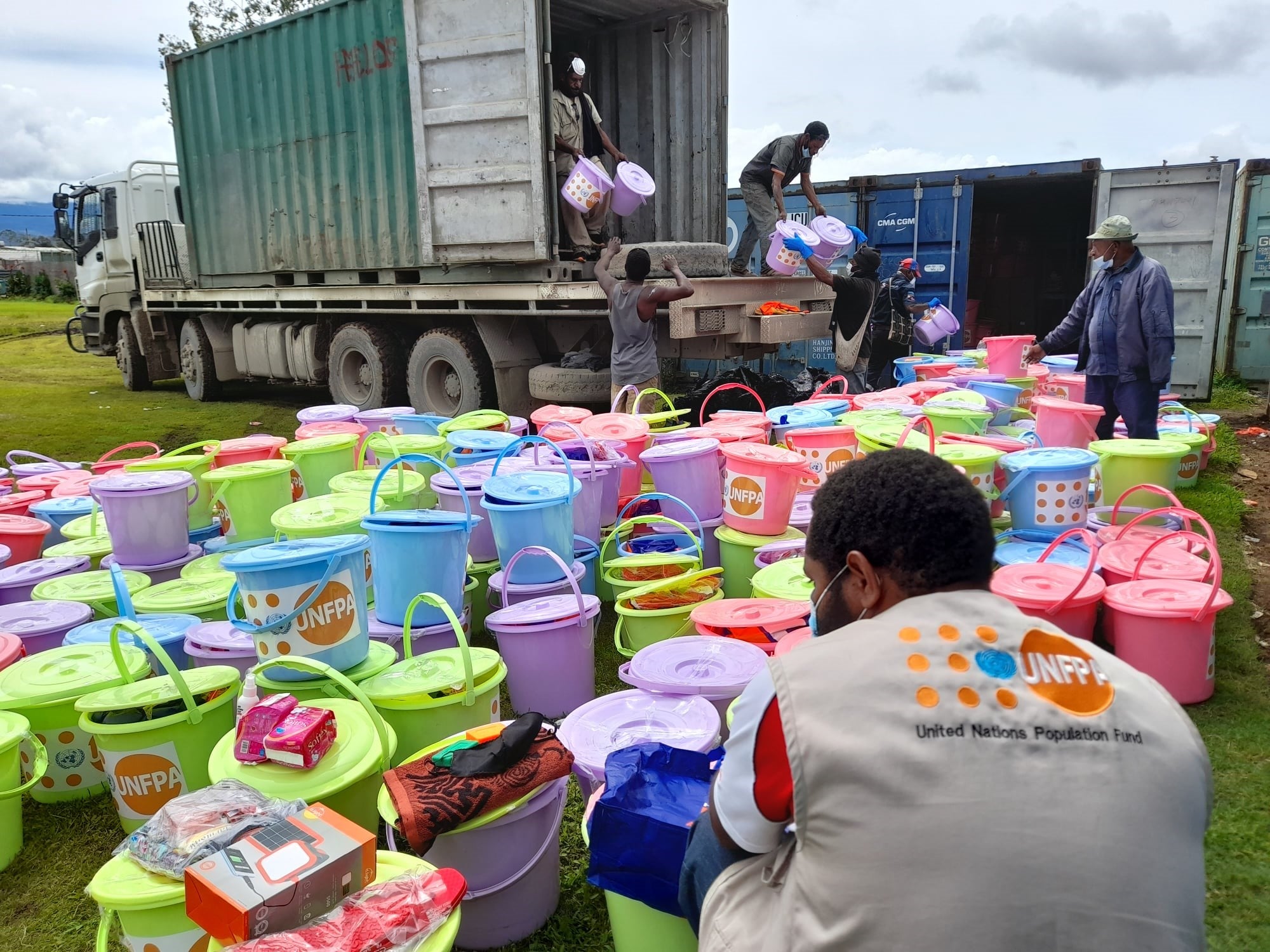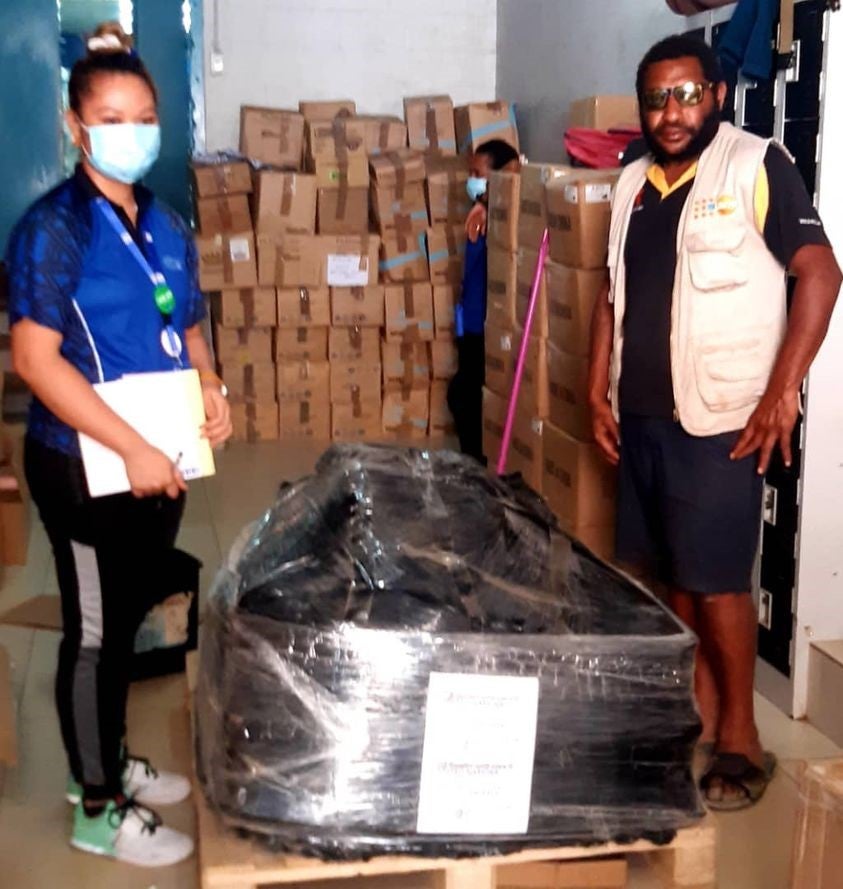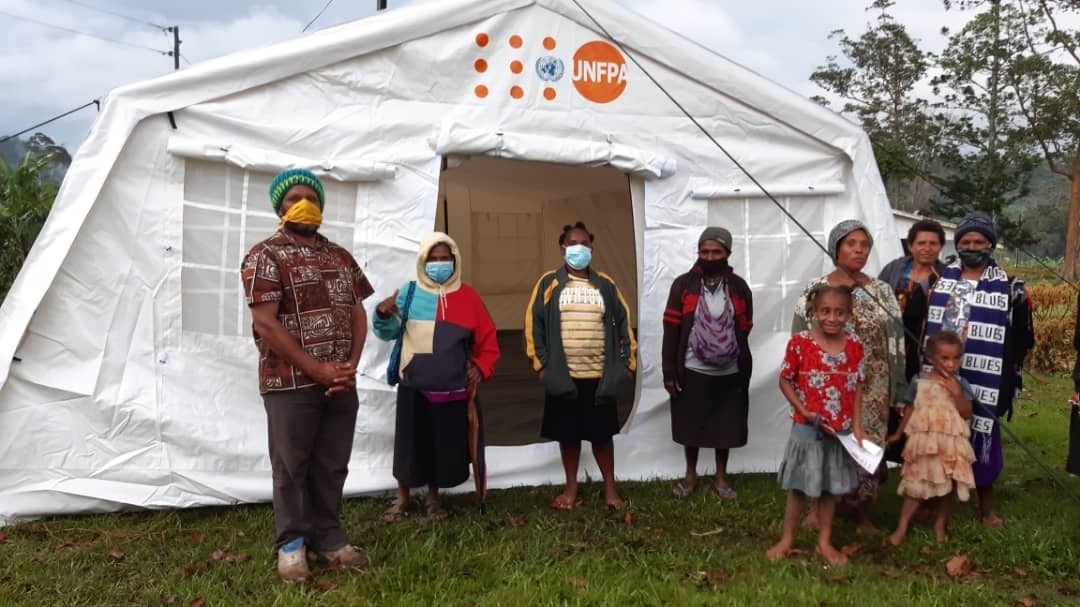Janet Hangu, one of the young girls displaced by the violent inter-clan conflict in Hela Province received UNFPA's Dignity Kit distributed at Tari Women's Association. Janet said "the Dignity Kit is essential not only for me but also for my other 3 sisters. In addition to the menstrual pads (disposable) and soaps, I will also share the solar-powered torch with my family." She thanked UNFPA and its partners for recognizing their day-to-day needs which they could not afford after their displacement.
UNFPA continues to support women and girls displaced by the recent inter-clan violence in Hela Province, Papua New Guinea. In addition to providing women and girls with a safe space, Dignity Kits and Reproductive Health Kits, UNFPA trained key service providers and humanitarian actors, established mobile clinics, and funded awareness programs on Sexual and Reproductive Health Rights (SRHR) and Gender Based Violence (GBV).
The violence has affected as of 2nd February, about 6,000 people; prompting the Governor of Hela Province to request humanitarian assistance for 2,000 people. The displaced people mainly include women, children and the elderly. The province has suffered a consistent tribal violence and the security situation remains tense, on top of the ongoing COVID-19 pandemic.
Following the assessment during an initial information gathering of limited supplies of feminine hygiene kits (Dignity Kits) and low stocks of commodities, the Disaster Management Team had requested the support of UNFPA to urgently respond to these needs as part of a coordinated response.

Locally customized and procured Dignity Kits offloading at Tari Hospital for distribution to women and girls displaced by the inter-clan conflict in Tari, Hela Province.
UNFPA’s intervention in SRHR
In partnership with the PNG Family Health Association and the Hela Provincial Health Authority, UNFPA Papua New Guinea Country Office established sexual and reproductive health mobile clinics at four sites in Tari to provide services to internally displaced women and girls as well as the host community that couldn’t freely access the main hospital due to the ongoing insecurity.
UNFPA’s intervention in GBV
UNFPA locally procured (and customized per the needs of displaced women and girls in Tari) 400 Dignity Kits (DKs) and distributed them to displaced women and girls affected by the inter-ethnic violence in Tari Pori District.
UNFPA also strengthened its multi-sector Gender-Based Violence (GBV) response by conducting in March 2021 a three-day training that brought together 21 participants on Gender Based Violence in Emergency situations. UNFPA additionally procured 800 Personal Protective Equipment (PPE) for the trainees and health workers at Tari Hospital to protect them against COVID-19 infection.

UNFPA procured PPE for distribution to frontline service providers, including focal points of Women and Girls Safe Spaces, Tari Hospital, and participants of trainings in Tari.
Photo credit: FranklinKunjip/UNFPA
With the partnership of church agency, UNFPA also established mobile Women and Girls Safe Spaces (WGSS) in four sites in Tari in consultation with community mobilisers and church partners. A Mobile WGSS Technical Guidance Tool is drafted and is currently under review.

UNFPA set-up tents for women and girls’ safe space at Halogoli Evangelical Church (ECPNG) mission station in Tari. The tents will be used for social activities for displaced women and girls form the Hawa Community who were affect during the latest tribal conflict in Tari, Hela Province.
Photo credit: FranklinKunjip/UNFPA
UNFPA’s Intervention on Communication with Communities
In partnership with PNG Family Health Association, the UNFPA office provided key messages addressing Sexual Reproductive Health, Gender Based Violence and COVID-19 to displaced women and girls. The outreach was conducted through the distribution of Dignity Kits and Sexual and Reproductive Health mobile clinics.
This project is made possible through the support of Supported by the Australian Government Department of Foreign Affairs and Trade (DFAT).


